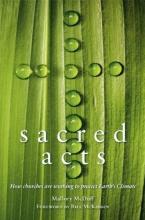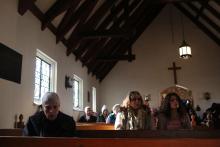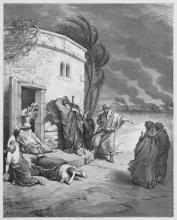Spirituality

Worried about exposure to foul language, immodest dress, peer pressure, and other inappropriate behavior, Susan Brown didn’t want her two daughters attending public schools — even though she’s a substitute teacher in a public school in Minnesota.
Brown initially home-schooled her daughters until a friend told her about the Minnesota Virtual Academy, an online public school that is fully accredited. She liked the curriculum, and as a single mom relying on substitute teaching income, she preferred how the school provided the supplies instead of having to buy supplies herself as a home-school parent.
“You can’t give your kids an effective moral and religious upbringing if you only see them a couple of hours a day,” said Brown, a Catholic whose daughters, now in the 10th and 12th grade, started virtual school in the second and fourth grade. “When you’re at home with them, you can incorporate your beliefs into the day.”
Since Florida became the first state to try them in 1996, virtual public schools have enjoyed dramatic growth, with at least some of it coming from religious families. Like home-schooling parents, parents of virtual public school students like having their children home so they can integrate religion and values into the school day.

"EVEN IF I OWNED Picasso's 'Guernica,' I could not hang it on a wall in my house, and although I own a recording of the Solti Chicago Symphony performance of Stravinsky's 'Rite of Spring,' I play it only rarely. One cannot live every day on the boundary of human existence in the world, and yet it is to this boundary that one is constantly brought by the parables of Jesus." So wrote a great New Testament scholar, Norman Perrin, in his book Jesus and the Language of the Kingdom. I often think about his frankness as I prepare for the transition between Epiphany and Lent. We must soften and make bearable the intensity of the scriptural story to face it every week in church. We can't dive to the depths every single week, and we are right to keep our child-friendliness going.
But we need to risk depth and passion, or run the danger of making the gospel seem boring and predictable. Our churchly betrayal of God lies in our willingness to make the Word seem banal. So perhaps the thing we need to give up for Lent is our avoidance of depth. The scriptures this month will speak to us of faith as the experience of being stressed almost to a breaking point. They will plumb the depths of divine frustration and disappointment. We must clear a space for these wounding and thrilling themes and suspend our strategies for making worship palatable and safe.

IN THE FOREWORD to Sacred Acts: How Churches Are Working to Protect Earth's Climate, prolific scholar-activist Bill McKibben recalls a time not long ago when many people of faith regarded environmentalism suspiciously—conservatives saw it as a cover for possible paganism, while liberals considered it less of a priority than problems such as war and poverty. Now, however, theologians and religious leaders discuss the environment almost as much as ecologists and Nobel prize-winning scientists do. As this book shows, moreover, the environmental movement now includes religious organizations such as Earth Ministry, Interfaith Power & Light, and GreenFaith, which are working at the grassroots level in congregations and communities.
Edited by Mallory McDuff, a lay Episcopalian who teaches environmental education at Warren Wilson College near Ashville, N.C., Sacred Acts boldly focuses on climate change. McDuff believes that momentum is building among Christian communities worldwide as they call for just climate solutions—much like a modern Pentecost moment. The book addresses both skeptics and those who know climate change is real but feel overwhelmed by the problem's magnitude and despair of finding and implementing solutions.
The contributors to Sacred Acts include clergy, teachers, activists, directors of nonprofit organizations, and a farmer. Its 12 chapters are divided into four sections on the themes and strategies of stewardship, spirituality, advocacy, and justice.

Despite a deep drop in the number of Americans who identify with a particular faith, the country could be on the cusp of a religious renaissance, says Frank Newport, editor-in-chief of The Gallup Poll.
Grounded in more than a million Gallup interviews, Newport's new book, God is Alive and Well, argues that the aging of the baby boomers, the influx of Hispanic immigrants and the links between religion and health could portend a bright future for faith in America.
This interview has been edited for length and clarity.

There will be, I assume, a thousand different ways to dismantle what it is that I am about to say. I get that. I respect it. I invite it. This is a conversation that we need to have and, thankfully, are having at a national level. That said, sometimes I wish we still lived in a time when talking about one's faith in public was considered inappropriate or rude. Sometimes, that is. Only sometimes.
Lillian Daniel has a new book coming out. I'll refrain from sharing my opinion about the book until after I have read it. You can read Robert Cornwall's review here. The book is entitled WHEN "SPIRITUAL BUT NOT RELIGIOUS" IS NOT ENOUGH: Seeing God in Surprising Places, Even the Church. There are some handy quick reviews on the amazon.com page. My favorite is from Shane Claiborne.
Lillian is as fed up with bad religion as anyone else, but she's also careful to celebrate good religion and good spirituality that brings people to life and makes the world a better place. May her book invite us to stop complaining about the Church we've experienced and work on becoming the Church we dream of.

I’m going to tell you something I do not do very well. But, only if you will not tell the other mothers because I have listened to them talk, and apparently I am the only one not very good at this. Deal?
I'm not good at helping my children learn to feed themselves. I totally get in the way. Let me explain.
Well, actually, there isn’t much about it to explain.
I don't like messes. So, I feed my children … for too long. I sit a bowl full of spaghetti in front of them, and I get a little panicky. I mean, have you ever found dried, crusted spaghetti noodles on the floor a week (or more) later when you're cleaning? And what about the slimy, greasy residue left on the plastic tray attached to the high chair? And then there's the highchair cover. I did not realize you could take that thing off to clean it until my second child was two. Wow. That was amazing — what I found under it, I mean.
Never mind the fact that most of the food gets on the child and everything and everyone else … not in their mouths.
And, I mean, I'm also very concerned about my child’s dietary needs. Seriously, I think that is the biggest reason I insist on feeding them well into their third year. (Did I just write that?) They need me. They need me to spoon that mouthful of spaghetti straight into their teeny little mouth. That way I know where it goes — there is no guesswork.

NEWTOWN, Conn. — Dealing with the pain of the school shooting that claimed 28 lives will take faith, support, and joyous Christmas celebrations, church leaders said at the first Sunday services held since the tragedy.
At houses of worship around town, people gathered in pews, crying, kneeling, and hugging each other through services that focused on remembering the victims of the Sandy Hook Elementary School shooting, uniting the community, celebrating the meaning of Christmas and preventing similar disasters.
Yet even this beleaguered town's day of worship provided a moment of fear when congregants at St. Rose of Lima Roman Catholic Church fled the building, saying they were told there was a bomb threat. Police with guns drawn surrounded the church. No injuries were reported, but the church canceled all events for the day.
Earlier in the day, services at St. Rose, much like other places of worship in the area, were focused on the tragedy.
Up-and coming-/singer-songwriter Noah Gundersen stopped by the Sojourners office to talk with our Brandon Hook about music, his new album Family, God, and creativity.
The Seattle-based folk artist was recently featured on Spotify’s Emerge app, which pits rising artists against each other based on play frequency, and is currently on a U.S. tour.
Special thanks to Noah for stopping by and being so open with us!

Radical monotheism. It sounds like a frightening term, when there are fundamentalist Christians and Muslims around the world and here inside our own borders, religious folk who want to turn our nation-states into theocracies under gods crafted according to their own images. When we think of radical monotheism, we hear, “My god is bigger than your god. No, wait: Your god’s a fake!”
But theologian H. Richard Niebuhr proposed a kinder, gentler, more generous idea of radical monotheism. He was writing between the Korean and Vietnam wars, as the clash between two “social gods” — capitalism and Marxism — bloodied the globe:

After November’s presidential vote, Catholics could cite ample evidence for their renewed political relevance while dispirited evangelicals were left wondering if they are destined to be yesterday’s election news. Yet their roles in American spiritual life may be reversed.
New research shows that Catholics now report the lowest proportion of "strongly affiliated" followers among major American religious traditions, while the data indicates that evangelicals are increasingly devout and committed to their faith.
According to Philip Schwadel, a sociologist at the University of Nebraska-Lincoln, in the 1970s there was only a five-point difference between how strongly Catholics and evangelicals felt about their religion.
By 2010, he said, that “intensity gap” had grown to around 20 points, with some 56 percent of evangelicals describing themselves as “strongly affiliated” with their religion compared with 35 percent of Catholics. Even mainline Protestants reported a higher level of religious intensity than Catholics, at 39 percent.

NEW YORK — In the afterglow, I give thanks for Thanksgiving Day.
It might be our most spiritual holiday, dealing as it does with that most spiritual of experiences: feeling gratitude.
Despite the commercial drumbeat for the aptly named "Black Friday," Thanksgiving Day itself tends to be about family, food, and free time. On Facebook, people shared recipes for stuffing, answered questions posed by nervous first-time cooks, told stories about traveling to be with family, and flooded the web with photos of people just being together.
I realize that those are ambiguous realities. Not everyone is blessed with healthy families, not everyone has enough food. Many work hard to prepare food and cheer for others to enjoy. But the promise is there — and unlike the promise of material hyperabundance that has come to dominate Christmas, the promise of Thanksgiving Day seems worth pursuing and attainable.

"NO ONE SPEAKING by the Spirit of God ever says, 'Let Jesus be cursed!'" insists Paul in his first letter to Corinth (12:3). Driving through Corinth not long ago, I found myself musing about the extraordinary spirituality that had grown up in the church he was trying to straighten out. Apparently, ecstatic worshippers caught up in charismatic excitement on the Lord's day were actually known to blurt out these shocking words: "Anathema, Jesus!" In a very brief period, the church there had come up with a mutation of the gospel in which only the cosmic, exalted savior, known through speaking in tongues and exciting miracles, mattered. The earthly person of Jesus of Nazareth had been a mere husk to be shucked off, they said. Only the Spirit-giving celestial Lord mattered. Jesus be damned! His teachings back in Galilee signified nothing; now they could concentrate on the prophecies that came hot and strong from heaven through the church's prophets—a belief that left plenty of room for all sorts of wild ethical "experiments," to put it mildly.
Well, no one actually utters "Let Jesus be cursed" out loud anymore, but, in a more subtle way, how prevalent is a pseudo-spirituality that relativizes the radical teaching of the reign of God! These readings bring us back under the authority of Jesus' witness in Galilee—and the reality that there is no Spirit, and no spirituality, except the one we receive as the driving energy to bring good news to the poor.

“Your body is a wrapped lollipop. When you have sex with a man, he unwraps your lollipop and sucks on it. It may feel great at the time, but, unfortunately, when he’s done with you, all you have left for your next partner is a poorly wrapped, saliva-fouled sucker.”
I cringed behind the wheel, appalled at the quoted words I heard coming from my audio copy of Half the Sky as authors Sheryl WuDunn and Nicholas Kristof discussed this statement uttered by Darren Washington, an abstinence educator, at the Eighth Annual Abstinence Clearinghouse Conference.
Sadly, it wasn’t too far off many Christian messages I’ve received about sex.
But let’s go back to the beginning.

I’ve wrestled for years with a Christian faith that focuses on personal salvation, on many levels, some of which I’m still excavating. First, the emphasis on individual salvation always seemed ironically selfish for a faith that seemed otherwise to be about putting yourself second to others. I also struggled with the idea that Christianity is about getting a certain set of beliefs right, articulating them before a group of peers through a statement of faith and then you were official. Is it really so rote? So didactic? So … human?
All my life, I’ve heard stories of people who felt utterly transformed by their faith proclamation, or at the moment of baptism, in the throngs of prayer or during some particularly stirring worship service. They spoke of these feelings for which I longed. I wanted the mountaintop experience, after which I would never be the same. I wanted to be turned inside-out by God, illuminated by the Holy Spirit with a fire that never subsided. I wanted to feel what all these other Christians claimed to be feeling.
I’ve been to literally thousands of worship services in my life. I’ve been back and forth through the Bible, taken communion more than a thousand times, was baptized, sang the songs, said the prayers, and yes, I’ve had moments when I felt as if God was so close I could nearly reach out and touch whatever it was that I sensed.

We were walking up the beach, on the sand as the tide moved out toward the ocean. I was holding Zeke's hand, talking with him about sea things. "I didn't know jellyfish swam this close to the shore during the spring," he said in 5-year-old wonderment. "I bet that drift wood is as old as The Old Man and the Sea. I think a horseshoe crab's blood can be used to treat cancer."
"Look," I said.
"What is it, Dad?" he asked.
I picked up a shell out of the deep, hot sand and held it in my open hand.

Is God a Cosmic Jerk?
That’s how I ask the question, but professional theologians use the term theodicy. It comes from two Greek words: theo, which means “God,” and dike, which means “justice.” Theodicy asks, “If God is good and just, then why is there so much evil in the world?” There are many answers to this question. Some claim that God causes evil. In which case, my question becomes relevant – Is God a Cosmic Jerk?
Let’s first examine the word “evil.” Theologian Joe Jones succinctly defines evil in his book A Grammar of Christian Faith “as the harm to some creature’s good” (280). Jones distinguishes between two categories of evil that harms a creatures good. First, there is moral evil – the harm humans inflict upon one another through violence, injustice, and oppression. The second category is natural evil – the harm caused by cancer, earthquakes, hurricanes, and other natural events.

If we try to mold faith into something more certain than simply faith, it becomes something else. A crutch, perhaps, or a drug. So how or when does this happen?
It happens when someone is suffering and we tell them that everything happens for a reason. In the bigger picture, this is that opiate of certainty and assurance being cast over all the chaos, suffering, and doubt in an effort to keep it all tied up neatly in a religious package. But what it creates beneath the surface is a bastardized image of a God who sits in the Great Beyond, plotting out our fortunes and misfortunes, causing loss and heartbreak in our lives for some greater unknown plan. This makes us no more than so much collateral damage in some narcissistic divine game.
Is that really the God we believe in?

When Staff Sgt. Brandon Hill came home from his third tour in Iraq last year, he expected his wife and young daughters at the welcoming ceremony. What he didn't expect were the pastors, secretaries and members of their Assemblies of God church to be there, too.
“It was awesome -- the fact that they would give up their time to come see us back,” said Hill, who is stationed at Fort Sill, an Army installation in Lawton, Okla. “It really shows that they really care.”
As Veterans Day approaches, denominational leaders and chaplains with years of military service are calling on more churches to find ways to minister to the men and women who have recently returned from Iraq and Afghanistan.
Chaplain Keith Ethridge, director of the Department of Veterans Affairs’ National Chaplain Center, said about 1 million military members have returned to civilian life -- with some continuing in Guard or Reserve forces -- after serving in Iraq or Afghanistan.
While some churches, especially those near military installations, might advertise themselves as being “military friendly,” Ethridge and other leaders are trying to expand that universe to other American congregations.
“What we try to do is encourage, in general, a supportive atmosphere,” said Ethridge, whose center is in Hampton, Va. “We want our clergy and our churches at large to be aware of how they can make referrals when they have friends or loved ones in need of support.”
In recent years, the VA has ramped up training, including in rural areas, for clergy to learn more about veterans’ issues and how they can refer former military members facing physical and spiritual health challenges. It held eight training events for rural clergy in 2012, and more are planned for 2013.
As part of his new work as a chaplaincy executive with the Southern Baptist Convention, retired Army Chief of Chaplains Douglas Carver is urging congregations to be places where veterans can turn as they make the transition home.
Carver knows the challenges firsthand: “I retired a year ago, and one of the hardest things for me to do is to transition back to a community.”

It's a joke. Well, it was. There we were talking with Diana Butler Bass and others from SOGOMedia in an online forum about the Presidential Election and the words flowed forth: Neighborliness is the new sexy. It was ridiculous, but then I started mulling the idea over and this is what happened. Adam Ericksen and I started pondering what Seven Marks of Neighborliness might look like.
1. Be a regular somewhere: Our neighborhoods are actually rather expansive spaces. Some of them involve strip malls. Some of us commute to work and, in that sense, we live in various neighborhoods. Yes, plural. How can we root ourselves in these places? ...